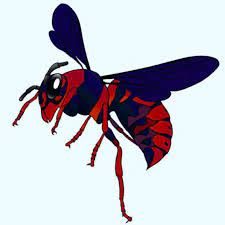Kaedy Fischer, ’Doah Staff Writer
March 6, 2013
What if you found out your roommate was raped? Would you know what to say, who to go to or how to help them cope? In the past, you might have asked Dr. Amy Sarch, head of the women’s studies department, for advice. But now, you can go to the [Not Just] Women’s Center. Located in room 210 in Cooley Hall, the center was founded by Sarch for people from all walks of life, not just women.
“Students should expect a welcoming, warm, non-judgmental atmosphere where they can come and ask questions, any questions about sexual assault. Even questions they may feel are ‘stupid,’ and there are no stupid questions,” explains Sarch. The [Not Just] Women’s Center overall goal is to prevent sexual assault and make sure that students affected know they are not alone.
“It is about changing the perception about gender norms and questioning those norms and boundaries and perceptions of what is ‘ok’ in our culture.” People should feel comfortable having an open dialogue about this issue, without shame. “The center is the first step towards casting a critical eye on that culture changing and making that change happen,” Sarch continues. “It’s an issue that involves women and men working together for that change.”
Although Sarch founded the NJWC, it is run by the students for the students. The students working in the center are called “peer mentors.” They have all undergone a five hour training program with Raine Johnson, the Sexual Assault Prevention Educator at the Laurel Center.
Peer mentor Kristina Troxel, opened up about what the Center means to her. “I had a minor experience in high school and that made me drawn to trauma work. Knowing that the center is here… it’s just a such a good thing and it’s going to help so many people.” The NJWC is meant to be a safe-haven for anyone and everyone. Troxel is confident that Johnson prepared the peer mentors for any situation or question that comes their way. “Even just one person coming in and being helped would make it all worthwhile. Getting it up and running is an experience that is rewarding. We are here and in a position to help them.”
Mariagracia “MG” Rivas Berger also works as a peer mentor, and hopes that someday in the near future “people are less shy about this whole subject.” Like Troxel, she feels that the training really prepared her for any situation. She particularly appreciated that Johnson gave the mentors hypothetical situations alongside actual statistics. “The facts always astound me.”
Roughly one in four women will be sexually assaulted during her time in college. As well, 95 percent of campus rapes go unreported. Berger hopes that “more and more people will be less afraid to come here and talk about their experience. The more we talk about it, the more we will prevent it. It makes you feel more at peace and to have someone to talk to you about it is so refreshing.”
The NJWC has been a dream of Sarch’s for many years and now that it is happening she is overwhelmed with excitement. However, she firmly believes that in order for this to work, it needs to be run by the students. Within the next year, Sarch would like the center to become completely student-driven and for it to work closely with Student Life. She does not want her voice to be the loudest. “I will do all I can to keep that momentum going. I hope in five years when someone is talking about the center they say, ‘I heard that Dr. Sarch started this center five years ago; she stops in every now and then to add another boa to our collection.’”
Categories: Home

